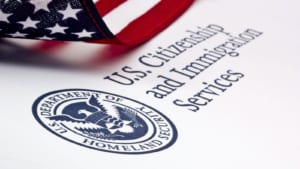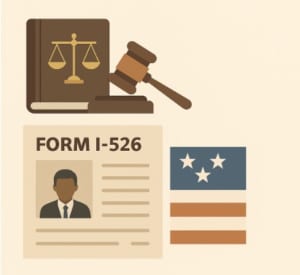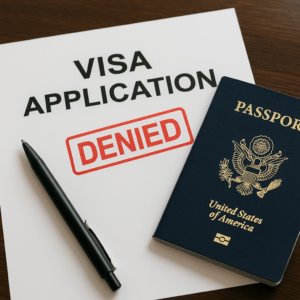U.S. Family VISAS
U.S Family Visas are a category of immigrant visas that allow family members of U.S. citizens and lawful permanent residents (Green Card Holders) to immigrate to the United States. These visas are designed to help families stay together and are part of the broader family-based U.S. immigration system. There are two main types of Family Visas:
- Immediate RelativeImmigrant Visas
- Family PreferenceImmigrant Visas
These visas are available to close (immediate) relatives of U.S. citizens. There is no annual limit on the number of these visas, making them more readily available. The categories include:
- IR-1: Spouse of a U.S. citizen.
- IR-2: Unmarried child under 21 years of age of a U.S. citizen.
- IR-3: Orphan adopted abroad by a U.S. citizen.
- IR-4: Orphan to be adopted in the U.S. by a U.S. citizen.
- IR-5: Parent of a U.S. citizen who is at least 21 years old.
These visas are also for relatives of U.S. citizens and some specified relationships with lawful permanent residents. These visas are subject to annual numerical limits, meaning there can be a driod. The categories include:
- F1: Unmarried sons and daughters (21 years or older) of U.S. citizens.
- F2A: Spouses and children (unmarried and under 21 years old) of lawful permanent residents.
- F2B: Unmarried sons and daughters (21 years or older) of lawful permanent residents
- F3: Married sons and daughters of U.S. citizens.
- F4: Brothers and sisters of U.S. citizens, where the U.S. citizen is at least 21 years old.
The process typically involves the U.S. citizen or lawful permanent resident filing a petition (Form I-130 Petition for Alien Relative) with the U.S. Citizenship and Immigration Services (“USCIS”). Once the petition is approved, the case undergoes additional processing through the U.S. Department of State, National Visa Center (“NVC”). Once the NVC clears the case, the family member is eligible to apply for the visa at a U.S. Embassy or Consulate.
If the family member is already in the U.S. on lawful status, he or she may be eligible to adjust their status. In that situation, the case does not go to the NVC, but is handled directly by the USCIS.
- Visa Availability: For family preference categories, there can be significant waiting periods due to annual caps.
- Affidavit of Support: The petitioner must demonstrate that they can financially support the family member, ensuring they do not become a public charge (rely on government money for support).
Immigrant Investor Visa (EB-5)
Section 203(b)(5) of the Immigration and Nationality Act (INA), allocates 10,000 “EB-5” immigrant visas per year to qualified individuals seeking Lawful Permanent Resident status on the basis of their capital investment in a commercial enterprise to stimulate the growth of U.S. economy.
To qualify, the investor make an investment of either US$800,000 or US$1,050,000 into a new business that creates 10 full-time jobs for qualifying U.S. workers and the investor must be involve in the management of the business. For the management condition, being a limited partner in a partnership or a member of a limited liability company will usually qualify the investor as being involved in the management.
The most important factor in qualifying for the EB-5 visa is that the investor must be able to demonstrate that the capital he or she uses for the investment was obtained lawfully. Proving the “source of funds” (SOF) is the most challenging aspect of the EB-5 visa.
Latest EB-5 News
Treaty Investor Visa (E-2)
The E-1/E-2 visa provides nonimmigrant visa status for a national of a country with which the United States maintains a treaty of commerce and navigation. The applicant must be coming to the United States to carry out substantial trade (E-1) or be in the process of investing a substantial amount of capital (E-2). An E visa application can be made directly at the U.S. Consulate where the applicant lives.
Key Requirements
- Person must have nationality of the treaty country
- Legal source and path of funds (not as stringent as EB-5)
- Actively in the process of investing
- Applicant or a person from the treaty country must own at least 50% of the business
- Applicant must have the ability to direct and develop the business
- Show intent to deart the U.S. after the stay in the U.S. ends
- Varies depending on business and location, but an applicant should have a target investment of around US$250,000
- Must demonstrate possession and control of the capital assets, including funds invested
Benefits of E Visa
- As long as all requirements continue to be met, the E visa applicant can apply for extensions indefinitely
- You can still apply for an impmigrant visa after securing an E visa.
- No Visa Quota: There is currently no limit on the number of E visas issued
- Visa for Spouse and Children: Your spouse and your children (under 21) can live, work and study in the U.S.
- E visas preparation and processing can take as little at 1-2 months allowing you and your family to quickly relocate to the U.S.
Latest E-2 News
Intra-Company Transfer Visa (L-1)
The L-1A Intra-Company Transfer Visa is a non-immigrant visa for managers / executives of international companies with operations in the U.S. and abroad. Once granted, you and your family can live in the U.S. for up to seven years (with extensions).
L-1A Visa Application General Requirements
- Over the past three years, has worked as an executive or manager at a foreign company for at least one year
- U.S. business that has a “qualifying” relationship with a foreign company
- Position with the U.S. business is for an executive or manager
- The U.S. business must demonstrate that the successful business will support the position of the executive or manager within one year of the approval of the L-1A petition
Benefits Of L-1A Visa
- No Visa Quota: There is currently no limit on the number of L-1A visas that can be issued
- Visa for Spouse and Children: Your spouse and your children can also live, work and study in the U.S. through family dependent L-2 visa
- Quickly move to the U.S.: L-1A and L-2 visas can be obtained in as little as 2 months allowing you and your family to quickly relocate to the U.S.
- You may qualify apply for an immigrant visa after securing an L-1A visa.
Latest L1-A News
Family and Fiancé(e) Visas
As some of the largest immigrant communities in the United States, Vietnamese and Filipino immigration on the basis of family or fiance(e) visas is an extremely important focus of our practice. The desire to bring over family members such as parents, spouses, siblings, and fiance(s) remains an ever so important aspect of the Vietnamese and Filipinos in America. The immigration attorneys and staff at Enterline and Partners work closely with both the petitioners either in Vietnam, Philippines, the United States or elsewhere as well as the beneficiary or visa applicant. At Enterline and Partners, we take a family or fiance(e) visa case from the beginning which involves filing the petition with the United States Citizenship and Immigration Services (USCIS) through the interview at the U.S. Consulate or U.S. Embassy.
Latest Family and Fiancé(e) Visas News
Unskilled Labor Immigrant Visas (EB-3)
The EB-3 immigrant visa allows for a foreign citizen to immigrate to the United States based on employment. EB-3 applicants follow a rigorous course which includes multiple U.S. government agencies before being interviewed at the U.S. Consulate or U.S. Embassy. Specifically Enterline and Partners advises clients who are interested in immigrating under the EB-3 visa.
Latest EB-3 News
214(b) Visa Refusal
All U.S. non-immigrant visa applicants such as those applying for tourist/ visitor visas and F-1 student visas are required to demonstrate to the independent subjective discretion of the U.S. consular officer that they are qualified to receive a visitor visa. All non-immigrant visa applicants are considered to be intending to immigrate, or go to the U.S. to live permanently, and thus must prove that they have “non-immigrant intent”. Applicants who are unable to meet this burden are normally refused a visa under Section 214(b) of the U.S. Immigration and Nationality Act. Obviously your “intent” is subjective and can only be demonstrated by showing other objective factors such as the purpose of the visit and that the applicant will return home when the purpose of the visit is completed.
WHAT IS A 214(B) REFUSAL?
A 214(b) refusal occurs when the consular officer interviewing the applicant independently decides that the applicant has not established that they meet the qualifications for the visa. While the consular officer will often not disclose the specific reason, examples of why applicants are refused include the following:
- Failure to prove to the satisfaction of the officer non-immigrant intent
- Lack of sufficient ties to their home country
- Unable to communicate their reasons for travel to the United States
- Consular officer is concerned that the applicant might overstay in the United States or work illegally
- Immediate family members in the United States while the applicant has few family members in their home country
- A pending or previously denied immigrant visa
- Inadequate assets to support the temporary trip to the United States
- Suspicious looking invitations from companies or persons in the United States
When the consular officer issues a 214(b) finding, the applicant’s passport is returned to them which should include an explanation explaining that they are ineligible to receive a visa at this time but may reapply again at another time. This is called a 214(b) refusal letter. It usually contains a very general explanation that the applicant failed to establish eligibility for the visa at this time.
HOW WE CAN HELP IF YOU ARE REFUSED A VISA UNDER 214(B)?
The U.S. immigration attorneys at Enterline and Partners have decades of experience in reviewing and analyzing visa refusals. If you have been refused a non-immigrant visa, we will review your entire case and provide possible reasons why the consular officer made his or her decision. By understanding more about your case, it allows our attorneys to strategize on how a refusal might be overcome and which will hopefully lead to a visa issuance the next time you apply.
Latest 214(B) Refusal News
Waiver of Inadmissibility
- Accruing unlawful presence during a previous trip to the United States.
- Being diagnosed with a communicable disease of public health such as active tuberculosis.
- Committing a crime of moral turpitude
- Fraud or misrepresentation
- Alien smuggling
Employment Based First Preference Immigrant Visa Category (EB-1A)
FOREIGN NATIONALS OF EXTRAORDINARY ABILITY IN THE SCIENCES, ARTS, EDUCATION, BUSINESS OR ATHLETICS
The Employment Based First Preference Immigrant Visa Category (EB-1A) is available for persons who have received national or international acclaim for outstanding achievements in Science, Arts, Education, Business or Athletics.
Examples of persons who might qualify as having extraordinary ability might be an Olympic medal winning athlete, or a Nobel Prize winner, or otherwise be able to show achievement through documentation of three of the following areas of achievement:
- Receipt of lesser nationally or internationally recognized prizes or awards for excellence;
- Membership in associations in the field that demand outstanding achievement of their members, as judged by recognized national or international experts;
- Published material about the applicant in professional or major trade publications;
- Evidence that the applicant is a judge of the work of others in the field;
- Evidence of the applicant’s original contributions of major significance to the field;
- Authorship of scholarly articles;
- Display of the applicant’s work at artistic exhibitions or showcases;
- Evidence the applicant has performed in a leading or critical role for organizations that have a distinguished reputation;
- Evidence that the applicant commands a high salary in relation to others in the field; or
- Evidence of commercial success in the performing arts.
Simply meeting three of the above criteria is not in and of itself a guarantee for qualification for this visa category. In making a case to show qualifications for an EB-1A visa, in addition to showing at least three of the above criteria, the individual must demonstrate that he or she has obtained “a level of expertise indicating that the individual is one of a small percentage of persons who have risen to the very top of the field of endeavor”. Although no offer of employment is required, the applicant must include with the petition convincing evidence that he or she is coming to continue work in the area of expertise and that the entry of the applicant will substantially benefit prospectively the United States.
Latest EB-1A News
other services
- Waiver of Inadmissibility
- Adjustment of Status
- Removal of Conditions
- U.S. Taxes for Expats in Vietnam
- Visa Refusal
- U.S. Citizenship & Naturalization
Licensed Immigration Attorneys

From student visas to family-based US immigration, we’re here to support you through the process to start your life in America.
CONTACT US TODAY FOR MORE INFORMATION
your gateway to seamless U.S. immigration solutions. Here's why clients choose us:

Benefit from our seasoned attorneys' deep knowledge and experience in U.S. immigration law.

Receive tailored guidance and support to navigate your unique immigration journey with confidence.

We offer comprehensive legal services to address all your immigration needs.







